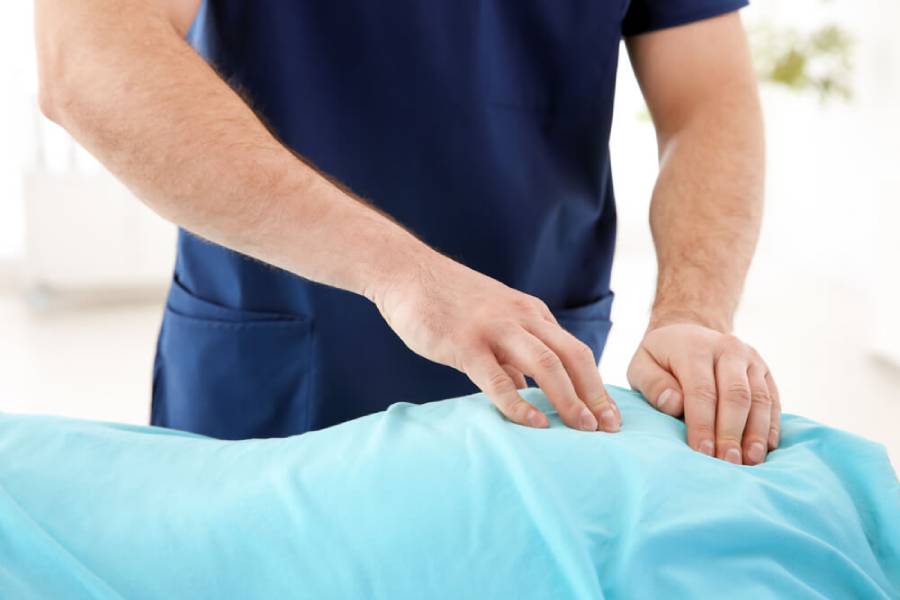- +91 9022557808 Call Us Now
- inquiry@drvishwajeetorthopedicpune.in Drop Us a Line
Pain Management
Pain management is an essential part of orthopedic care and therapy. Dr. Vishwajeet Chavan is the best pain management specialist in Baner, Pune will work with you to create an individualized plan to help control your pain.
The plan may include rest, massage or ice/heat therapy, over-the-counter and prescription pain medicine, and other complementary treatments. Physical therapy and other movement therapies may be added after your surgery. Deciding which pain management methods are suitable for you relies on factors like:
- Your personal health history
- Your prior experience with pain medicine and other pain management treatments
- If and what type of surgical medicine you’ll undergo for the orthopedic injury or condition that’s causing your pain

Your pain management plan also changes based on where you are in the treatment journey. For instance, the type of medicines you may be given before surgery can be distinct from what you’ll receive during your hospital stay. Your pain management plan will likely change after you’ve had surgery and been released from the hospital.
Some types of pain medicine that you may be given before, during, or after orthopedic surgery include:
- Over-the-counter pain medications
- Narcotic pain medications
- Anti-inflammatory, epidural, and/or steroid injections (injections into a vein, muscle, or near a nerve in what’s called a nerve block)
- Skeletal muscle relaxers
- Local anesthetics
Pain medication may be given:
- By mouth (liquid or pill form)
- By injection
- Intravenously (IV medication)
To be ready for surgery, your doctor may have you take a prescription or a combination of medications before going to the hospital. This is planned to help reduce your pain during and instantly after surgery.
Local anesthesia dulls the area being operated on. It may be issued as an injection or given by an anesthesiologist as an epidural injection or nerve block. Your anesthesiologist may also use IV medications during and immediately after surgery to lessen your pain.
Speak with your doctor before surgery if you have questions about your specific surgical and post-surgical pain management plan.
After surgery:
Following surgery, your orthopedic surgeon and nurses will evaluate your pain. An orthopedic doctor will adjust your pain medication and therapies accordingly. Depending on your condition and whether you had an outpatient procedure and will be going home, or if you’ll be staying the night in the hospital, you may receive medication:
- At regular intervals to prevent a sudden surge of pain
- As needed, only when you request it from your nurse or other providers
- On-demand, using a patient-controlled analgesia device that lets you manage your pain by helping prescription medication through an IV. These devices are only used in the hospital.
You must take your pain medication as prescribed. You need to ask for pain medication when pain first starts to keep it under control. Be sure to tell your doctor or nurse if you have constant pain that won’t go away despite medications and other pain therapies.
After discharge:
Your pain probably won’t go away immediately after surgery. In addition to some lingering pain from the situation that led to surgery, you’ll have some pain or soreness from the actual surgery itself. Dr. Vishwajeet Chavan will create a post-surgical pain management plan to fit your needs. In addition to pain medication, your post-operative plan for pain relief may include:
- Massage
- Bracing or casting
- Heat or ice therapy
- Elevation of the affected area
- Muscle relaxation techniques
- Physical therapy, whether in-home therapy or at an outpatient therapy facility
- Other movement therapies
Side effects:
Pain medications often come with side effects such as:
- Dizziness
- Constipation, particularly with narcotic pain medications
- Itching
- Nausea and/or vomiting
- Drowsiness
- Urinary retention (difficulty passing urine)
It’s essential that you follow all prescription instructions and that you heed warnings against driving, operating machinery, or consuming alcohol.
Dr. Vishwajeet Chavan will likely start tapering off your narcotic pain medication schedule soon after surgery.
How to book an Appointment?
WhatsApp us

